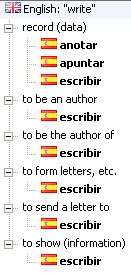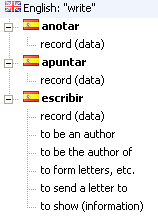According to the Oxford English Dictionary, these are the 25 most commonly used verbs in English: 1. be, 2. have, 3. do, 4. say, 5. get, 6. make, 7. go, 8. know, 9. take, 10. see, 11. come, 12. think, 13. look, 14. want, 15. give, 16. use, 17. find, 18. tell, 19. ask, 20. work, 21. seem, 22. feel, 23. try, 24. leave, 25. call.
All these verbs are one-syllable words; the first two-syllable verbs are become (26th) and include (27th).
Furthermore, 20 of these 25 are Old English words, and three more, get, seem, and want, entered English from Old Norse in the early medieval period. Only try and use came from Old French.
It seems that English prefers terse, ancient words to describe actions or occurrences.

 But around AD 400 the Germanic tribes were on the move allover Europe, as can be seen in the map behind the link below.
But around AD 400 the Germanic tribes were on the move allover Europe, as can be seen in the map behind the link below.

